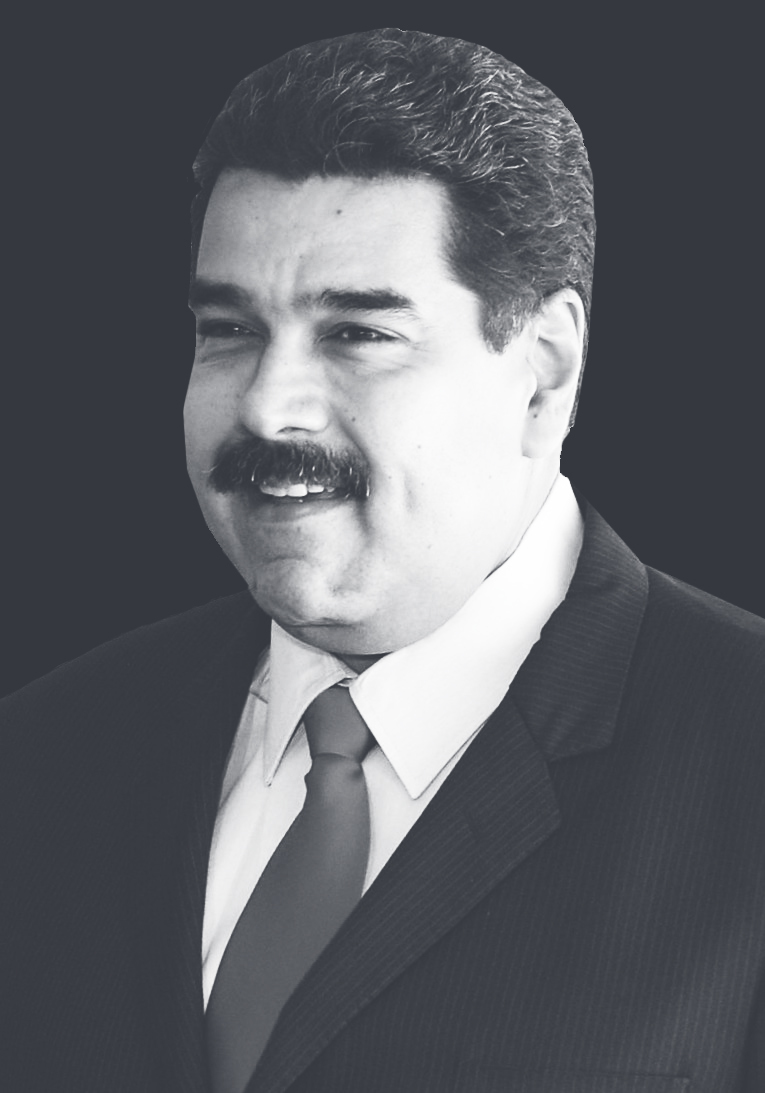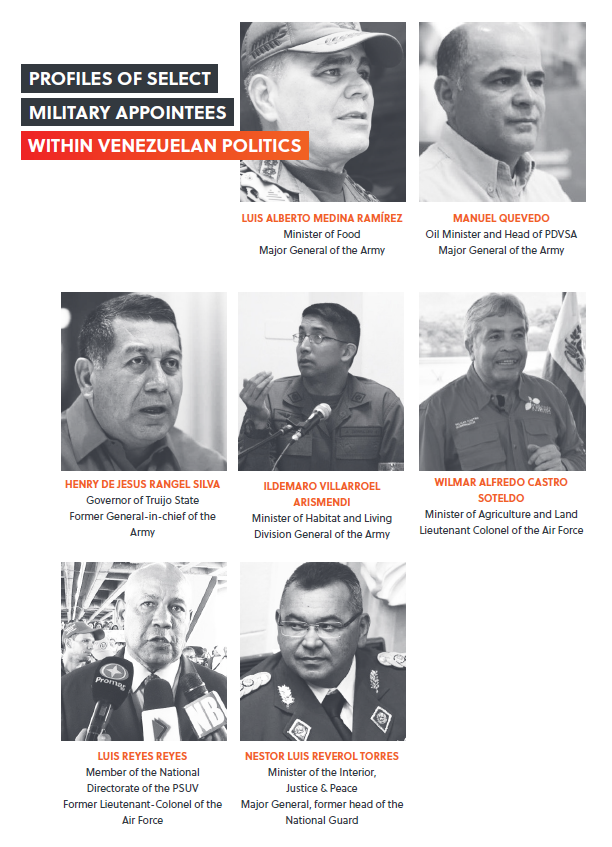Maduro's 'Carrot and Stick' Approach to Managing Relations with the Venezuelan Military

In Venezuela, the age-old maxim “keep your friends close and your enemies closer” is coming to characterise President Nicholás Maduro’s approach to managing relations with the Venezuelan military. On 2 July, the president announced the promotions of over 17,000 members of the Fuerza Armada Nacional Bolivariana (FANB, National Bolivarian Armed Forces) as part of a “week of military dignity”. The announcement followed prior reports that, as a prerequisite for military promotions, candidates had to make a formal written oath of loyalty to Maduro, pending the dismissal of military personnel who refused to do so. These moves are illustrative of Maduro’s growing concern regarding the military’s commitment to his administration.
Maduro’s hold on power, via his Partido Socialista Unido de Venezuela (PSUV, United Socialist Party of Venezuela), has come under significant pressure since the death of his predecessor, Hugo Chavez, in March 2013. A combination of declining oil prices, and the impact of economic policies, including artificial price and currency controls, have contributed to countrywide shortages of goods and services and led to hyperinflation surpassing an estimated 40,000 percent in recent months. Furthermore, the ensuing mass exodus of citizens seeking better economic opportunities and refuge from criminality has put a strain on neighbouring countries, and left Venezuela with a deficit of skilled professionals required to maintain equipment and infrastructure countrywide. Additionally, regular service-delivery protests over the lack of water, food and medicine continue to take place throughout the country.
Given this state of affairs, the Maduro administration, echoing techniques deployed by the preceding Chavez government, has increasingly relied on the state security apparatus to maintain its hold on power. Most visibly, this was evidenced by the use of the militarised police force - Guarda Nacional Bolivarian (GNB, Bolivarian National Guard) - to supress the anti-government movement which triggered mass protests throughout Venezuela in mid-2017. In exchange for military support in this regard, Maduro continued the Chavez regime’s policy of granting special benefits to the FANB. Such appeasement has taken the form of salary increases and the ongoing placement of high-ranking military commanders into influential – and lucrative - positions in government, including within the state oil company Petróleos de Venezuela, S.A (PDVSA). However, it has also entailed providing security forces with institutional benefits that appear exceptional given the dire state of the Venezuelan economy.
These include, for example:
- Handing over the food and water distribution function to the military in 2016, giving participating soldiers the ability to appropriate such goods for profit or personal sustenance;
- Giving government-placed commanders access to the official importation currency exchange of ten Bolívars to one US dollar – a preferential exchange rate facilitating substantial profits from currency manipulation schemes; and
- Turning a blind eye to acts of collusion and criminality - including drug-trafficking, extortion and corruption - by both lower ranking soldiers and high-ranking commanders.
Furthermore, in February 2016, the Maduro government designated a large portion of the southern bank of the Orinoco river as the Orinoco Mineral Arc, and granted the military guardianship over the area. This has allowed military personnel to reap substantial benefits by participating in a military-operated mining enterprise.

However, these appeasement measures have failed to prevent the emergence of cracks in terms of the Venezuelan military’s internal cohesion, and loyalty to the PSUV government. For example:
- On 8 March 2018, local media reported the arrest of 19 mid- to senior-level officers by counterintelligence agents on charges of rebellion and treason;
- On 28 February 2018, the official gazette announced the dismissal of 24 soldiers following charges which included attempting to depose the government. The accused included high-ranking generals;
- On 6 August 2017, a small group of soldiers mutinied in Carabobo, northern Venezuela, and attempted to launch a rebellion from the Paramacay fort. Two of the mutineers were killed and eight were arrested in a subsequent crackdown against dissenters; and
- On 27 June 2017, a former forensics officer reportedly stole a helicopter and launched a small arms and grenade attack against the Supreme Court building in Caracas. Though it was uncertain at the time whether the event had been staged, the perpetrator and two of his associates were later killed by security forces in a raid on 15 January 2018.
However, the incident most likely at the forefront of Maduro’s mind pertains to the latest act of munity emerging from within the ranks of the FANB, which took place in May 2018. Although the specific details of the incident remain unclear, US media publishers – having corroborated events via a Venezuelan military court report, and conducted interviews with escaped conspirators and lawyers of the accused – report that several dozen members of the FANB, with the support of some civilians, had devised a plot to take over the presidential palace. The plot was allegedly scheduled to take place during the presidential election on 20 May, and entailed plans to capture Maduro, with the intention of putting him on trial for crimes against the state. However, the plot was reportedly thwarted, with several dozen arrests made mid-May and the suspects, some accused of treason, imprisoned by a military court.
Viewed in this light, Maduro’s moves to secure the military’s favour mark significant attempts by the president to establish the FANB as a pillar of support for the continued stability of his administration. Nevertheless, numerous grievances persist amongst military personnel, especially lower-ranking soldiers who, alongside the rest of the Venezuelan population, are struggling to access, and afford, basic goods and services. Additionally, PDVSA, which is the main incomegenerating body behind the government’s budget, is struggling to maintain, let alone increase, petroleum production, due to maintenance breakdowns and the shortage of industrial inputs.
There remains a high likelihood of intermittent mutinies taking place amongst the lower ranks of the armed forces.
Thus, in the absence of sufficient ‘carrots’ - at least when it comes to placating the military’s lower ranks and officers - the Maduro administration has placed a growing reliance on ‘sticks’. For example, Maduro has set out to purge and arrest dissident members of the FANB - reportedly with the help of Cuban intelligence - as a means of instilling fear amongst the ranks and centralising a membership base loyal to his party’s cause. Nevertheless, there remains a high likelihood of intermittent mutinies taking place amongst the lower ranks of the armed forces, including low-impact incidents such as soldiers abandoning their post to flee the country. Although isolated acts of military rebellion amongst soldiers and officers are also likely, given that a large part of the FANB has been co-opted into institutional corruption and remains fearful of government reprisals, the likelihood of a large-scale military rebellion remains low. However, there is increasing uncertainty with regards to how successfully Maduro’s ‘carrot and stick’ approach will secure the support of the mid to higher-ranking levels of command within the FANB, which, in turn, increases uncertainty around the likelihood of a high-level military coup.
Nevertheless, as it currently stands, the high command has a lot to lose by a change of government that is not conducted on its own terms. Apart from a possible crackdown on criminal collusion within their ranks, a change in government also jeopardises the extensive privileges which accompany government-appointed posts. Additionally, co-opted military personnel likely fear the prospect of having to stand trial should a judicial investigation target the conduct of the PSUV once it is no longer in power. Thus, a significant incentive remains for high-ranking officers to, at the very least, keep the PSUV in control of government. Such incentives, however, remain closely tied to Maduro’s ability to keep up his strategy of appeasement. The Venezuelan military has historically been a kingmaker in the country’s politics, and there is little indication it will relinquish this role in the short to medium term.